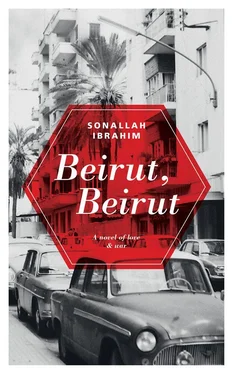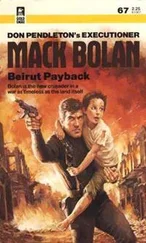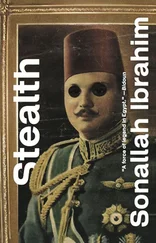Sonallah Ibrahim
Beirut, Beirut
They searched me twice: the first time at the customs gate, and the second time before the exit leading to the tarmac. Between the two, my leather carry-on bag and I passed a closed-circuit television and an airport scanner. One of them was waiting for me at the door of the plane, probing with his hands under my arms, between my legs, and inside both my carry-on and duty-free bag. Finally, I was allowed to board the plane.
I stopped beside the first empty seat I came across. I stowed the plastic bag in the overhead compartment and sat down, after putting the carry-on on the floor between my feet.
There was an empty seat between me and the airplane window through which the feeble afternoon sun shone. Beyond it appeared the enormous billboard for Cairo International Airport. I sat back and stretched my legs out beneath the seat in front of me. Soon enough I had to move them to one side to clear a path for a passenger in a flowing white robe who sat down beside me. Out of the corner of my eye, I noticed the Saudi ghutra headdress hanging down over his shoulders.
I heard him sigh loudly as he spoke to me: “They treat you like you’re a terrorist or a fedayeen .”
I was busy fastening my seatbelt around my waist, and didn’t bother answering him.
In a few minutes, the plane filled up. Flowing robes and bulky clothes from the countryside were spread all over the interior, topped by dark-brown faces that spoke of fear and worry. I noticed some of them wearing chic European clothes, their eyes hidden behind dark sunglasses, with reinforced Samsonite bags resting on their knees. There were a few women; some of them revealed delicate arms carrying handbags that looked like shoeboxes or jewelry boxes. There wasn’t a single fellaha among them.
The plane finally made its ascent, and my neighbor finished the prayers he had been muttering under his breath. A little later, the “No Smoking” sign turned off, and we heard the sound of the pilot’s voice as he introduced himself, telling us our cruising speed and altitude, and how long it would be before we reached Beirut.
I undid the seatbelt, and took out of my pocket my pack of Egyptian cigarettes. I lit one. I realized from the first puff that smoke was seeping out of it from several holes, so I stubbed it out on the tray table. I decided to put off smoking for a while, to reduce the risk of getting cancer.
My neighbor addressed me as though he were continuing a conversation between us.
“Didn’t the war end two years ago? So why all those procedures?”
I didn’t understand at first which war or which procedures he meant. Then I realized he was referring to the Lebanese Civil War, and the repeated inspections we were subjected to.
I turned to him. “They’re just precautions — there’s no sinister motives behind them.”
The brown face of an older man, around sixty, gazed back at me. At the center of it were two cunning eyes, surrounded by a light-gray beard with a tapered end.
His eyes roamed over my clothes and hair, and lingered over my finger, which had no wedding ring, and the glimmers of white hair on my head. An intense focus appeared in his eyes as he observed the leather bag placed between my feet.
I felt an urgent need for a drink, so I turned in the other direction, leaning into the aisle to ask one of the flight attendants. I mentally calculated how many dollar bills I had on me, and decided to order a beer. Then I remembered that it cost more than fifty cents, but less than a whole dollar. Usually, the flight attendant wouldn’t give back change for a dollar, because the plane was Arab, and we were all Arabs. But for this dollar, I could get a glass of whiskey or gin that would put a little life in my veins.
One of the passengers in the opposite row turned toward me, clutching his armrest with fingers covered with an overlay of yellow. He was addressing the passenger behind me in an Egyptian accent, asking him if he had bought his tape recorder at the duty-free shop.
“These fellows are all heading off to work in Iraq,” the Saudi said, gesturing at him. “They’re forced to travel by way of Beirut. Baghdad Airport is closed, and Amman Airport can’t handle the overflow any longer.”
My need for a drink grew stronger. The flight attendant walked by and I asked her for a glass of whiskey. I ignored the look of disapproval from the Saudi.
A moment later, he asked, “Is Beirut your final destination or are you headed somewhere else?”
“No,” I said, “Beirut.”
“East or West Beirut?”
I was about to answer automatically that I was going to East Beirut. But then I remembered that Beirut was the only place in the world today where political alignments are just the opposite of their geographical locations.
“West Beirut,” I replied. “And you?”
“I have business in a lot of places.”
The flight attendant brought me an extremely small bottle containing enough for one glass, and a glass with some ice cubes. I opened the bottle and poured the whiskey into the glass, then shook it around several times and raised it to my lips.
Warmth coursed through my insides. I lit myself a cigarette and took some slow puffs.
“Business or pleasure?” he asked.
“Business,” I replied.
“First time?”
“No.”
I emptied the glass, and instantly felt the desire for another one.
“Do you have a job lined up, or are you going to look for one?” he went on.
“You might say I’m going to look.”
“What kind of work do you do, exactly?” he asked with interest.
“Writing.”
“You’re a journalist?”
“Not exactly.”
“So you’re not going to look for a job at one of the newspapers there?”
I shook my head.
“Then are you looking for a political organization you can write for?”
“Not at all. I’m looking for a publisher for a book I’ve written.”
He lapsed into thought, so it was my turn to ask him: “And you… what kind of work do you do?”
“As you Egyptians would say, I’m a contractor .”
“A contractor for what?”
“Everything.”
He gestured with his hand, pointing to the Egyptian passengers on the plane, adding, “I have hundreds of these people in Saudi Arabia.”
I began to imagine that second glass of whiskey.
“Do you know a movie director named Sobhy Tawfiq?” he asked me.
I thought about it, and then answered that I didn’t.
“I was with him at the Hilton this morning,” he told me.
I made no response. He was silent for a moment, and then continued with his questions: “Why didn’t you publish your book in Egypt?”
“No one wants to publish it,” I replied.
“Is it your first book?”
“No.”
“It must be a political book.”
“Just the opposite,” I said. “It’s a pornographic book.”
He blinked quickly, then went quiet. After a little while, he hesitantly asked, “Do those books… make money?”
“Oh, a lot.”
I felt that I deserved another glass, so I decided to sacrifice a second dollar. I signalled the flight attendant as she walked by, passing out newspapers.
I took two Lebanese newspapers from her, handing one of them to my neighbor. I noticed she had several American newspapers, so I helped myself. I glanced at the lower half of the Lebanese paper, and found it was divided into three main articles: the first was about the press conference that Reagan held after his election as president of the United States. The second was about a recent Israeli bombardment of South Lebanon. As for the third, it contained a statement by the foreign minister of Iraq, in which he defended the war that his country had launched against Iran, saying that Iraq’s military and economic forces would be liberated from the Iranian “distraction”, so that it could counteract the Israeli menace.
Читать дальше












